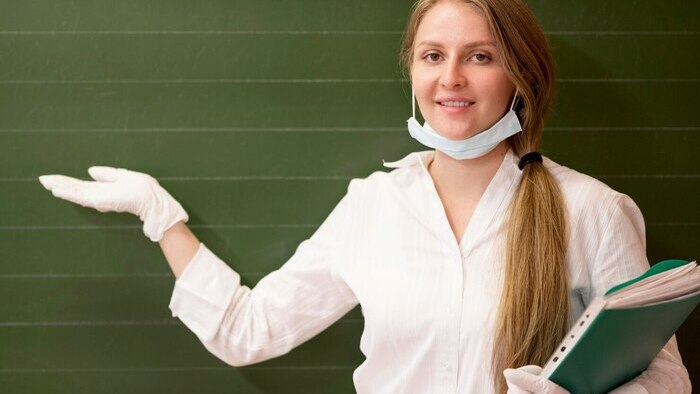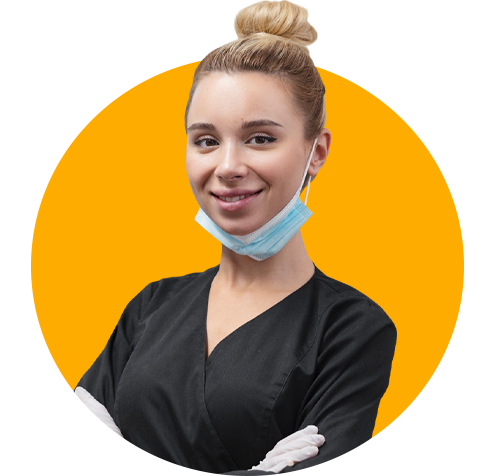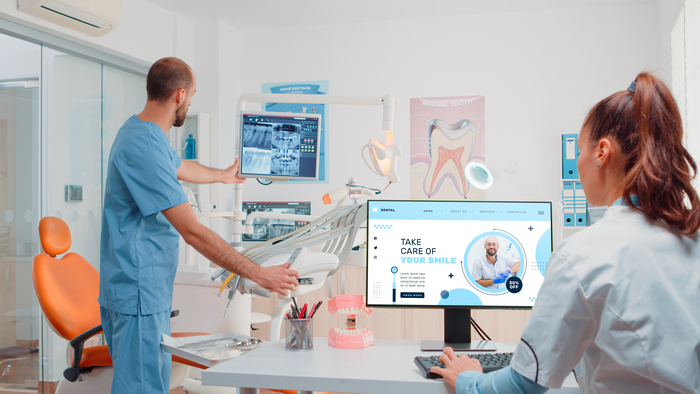Dentists
How to become a dental hygienist in Switzerland – All you need to know
Published on 06/01/2025

Are you considering a career in dental hygiene? Whether you already have experience in the healthcare field or are thinking about a career change, becoming a dental hygienist in Switzerland offers promising opportunities!
In Switzerland, dental hygienist training is regulated and structured to ensure high-quality education across all language regions. However, the path you take may vary slightly depending on whether you pursue your training in the French-speaking region or in the German-speaking part of the country. Below, you’ll find a comprehensive overview of educational requirements, admission criteria, schools and the specific training routes available.
Why choose a career in dental hygiene?
As a dental hygienist, you play a key role in oral health prevention. Your work helps improve the well-being of your patients. From promoting good oral hygiene habits to providing specialized treatments such as teeth whitening, you complement the work of dentists.
Training in the german-speaking region
In the German-speaking part of Switzerland, the educational landscape for dental hygiene offers a choice of three reputable institutions, each providing a Higher Professional Education (Höhere Fachschule) program. Like their Romandy counterparts, these full-time programs generally span three years and blend theoretical instruction with clinical practice and internships. However, having multiple options means you can select the learning environment that best fits your preferences and career goals.
The three main apprenticeships:
- Careum Bildungszentrum (Zurich)Careum’s program emphasizes both strong theoretical foundations and practical, hands-on learning. Over three years, you will study disease prevention, treatment planning, and therapeutic procedures while honing your ability to communicate effectively with patients. The final qualification involves a comprehensive diploma examination, which includes a written thesis, clinical skill assessments, and oral exams.
- Prophylaxe Zentrum Zürich (PZZ) – Höhere Fachschule für Dentalhygiene (Zurich)At the PZZ, the curriculum focuses on comprehensive prevention, patient communication, and continuous professional development. In addition to mastering clinical treatments and oral hygiene counseling, you will gain skills in resource management, team leadership, and quality assurance. Upon graduation, you will have the competencies to work effectively with patients of all ages and collaborate with multidisciplinary teams.
- medi, Zentrum für medizinische Bildung (Bern)The medi center’s structure features a phased learning approach, where you gradually acquire deeper knowledge and responsibility as you progress. Early modules cover foundational oral health sciences, while later stages introduce more complex periodontal therapies and patient-centered care. Along the way, you complete internships in dental practices, gaining paid, real-world experience. This blend of theoretical and practical learning ensures you are well-prepared for the workforce from day one after graduation.
Admission requirements, qualifications and costs in the german-speaking region
Admissions criteria are similar across these three institutions. Generally, you’ll need:
- A secondary-level II qualification (e.g., Matura, vocational training with a federal diploma).
- Strong German language skills, often at or near the C1 level.
- A good grounding in the natural sciences (biology, chemistry, physics).
- Well-developed manual dexterity, attention to detail, and interpersonal skills.
- Successful completion of an admissions assessment, which may include an interview, practical test, or written examination.
Costs and financial arrangements vary. At medi in Bern, fees are clearly structured by training phase, and students earn a stipend during the practical training years. At Careum or the PZZ, different cost models apply, so be sure to check the latest information on their respective websites.
Training in the french-speaking region
Program Structure:
In Romandy, dental hygienist training follows a standardized curriculum guided by a national framework (Plan d’études cadre, PEC). The program is full-time and lasts about three years, combining classroom instruction, clinical practice, and a final professional internship.
What you’ll learn:
- First year: You’ll begin by studying dental and medical fundamentals, such as oral anatomy, basic instrumentation, ergonomics, and infection control protocols. You’ll also learn how oral health relates to overall health and master the selection and use of preventive measures.
- Second year: As your skills develop, you’ll treat a wider range of patients, manage more complex periodontal issues, and refine your communication strategies. You’ll also deepen your understanding of advanced prevention and hygiene techniques, work with imaging technologies, and collaborate closely with other members of the dental team.
- Third year: During the final stage, you’ll engage in a clinical internship within a dental practice. This hands-on experience allows you to apply your knowledge in real-life scenarios, develop therapeutic competencies, exercise decision-making autonomy, and further refine patient care and prevention strategies.
Admission requirements, qualifications and costs in the french-speaking region
- Be at least 18 years old by the year of admission.
- Hold a secondary level II diploma (such as a high school diploma, general education certificate, vocational certificate, or equivalent qualification in the healthcare field).
- Have B2-level proficiency in French (according to the European Language Portfolio) for non-French speakers.
- Pass the admission exam (including psychological tests, an interview, and a manual skills assessment).
- Complete a recent half-day internship with a dental hygienist practicing in Switzerland.
Registration includes a fee of CHF 200. If you are a taxpayer in Geneva, the training is free. However, you will need to purchase equipment, which costs around CHF 2,500.
Career prospects across Switzerland
No matter where you train—in Romandie or the German-speaking region—you will emerge as a qualified dental hygienist ready to step into a rewarding career. Opportunities include working in private dental practices, clinics, public health settings, or even running your own business. Your role as a dental hygienist will place you at the front line of oral health education and prevention, helping patients protect their smiles, improve their general health, and enhance their overall quality of life.
What is the salary of dental hygienist in Switzerland?
When it comes to career prospects, the salary for dental hygienists in Switzerland is quite attractive. On average, it is around CHF 82,000 per year, or approximately CHF 6,800 per month.
It’s worth noting that as a dental hygienist, you can choose to work as an employee in a dental practice or as an independent professional. This choice will directly affect your annual income.
Ready to begin your journey?
Now you know the educational pathways, requirements, and professional prospects for becoming a dental hygienist in Switzerland. Whether you choose to train in the French-speaking region, following a single, structured route, or prefer the variety and flexibility offered in the German-speaking area, your future in oral healthcare is promising! We wish you great success on this journey and a rewarding career in the field of oral health!
Sources
- Hygiéniste dentaire – orientation.ch
- Plan d’études cadre pour les filières de formation des écoles supérieures: Hygiéniste dentaire Association suisse des centres de formation santé (ASCFS),
- Hygiéniste dentaire salaire – Toute la Suisse – Jobup.ch




